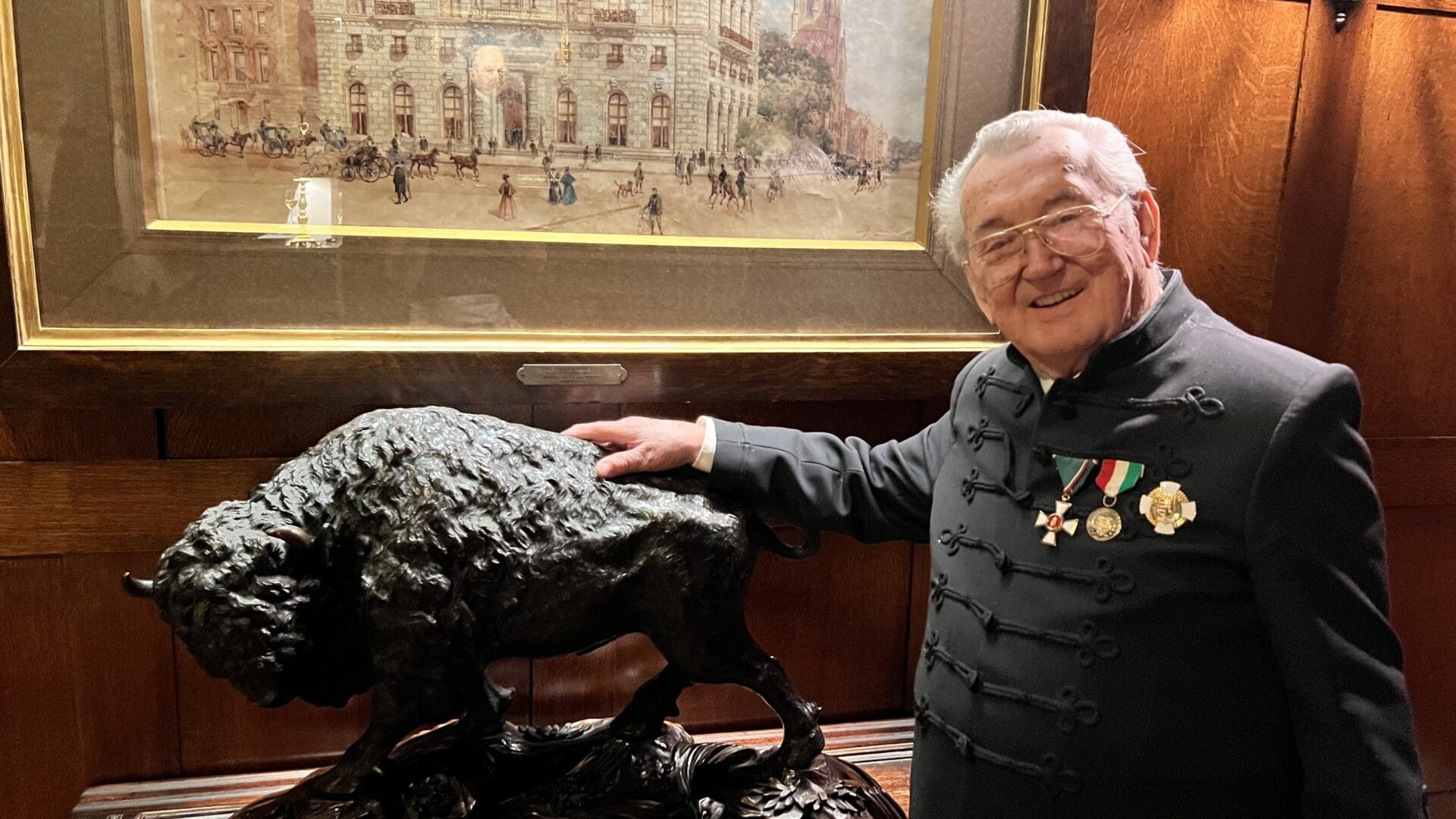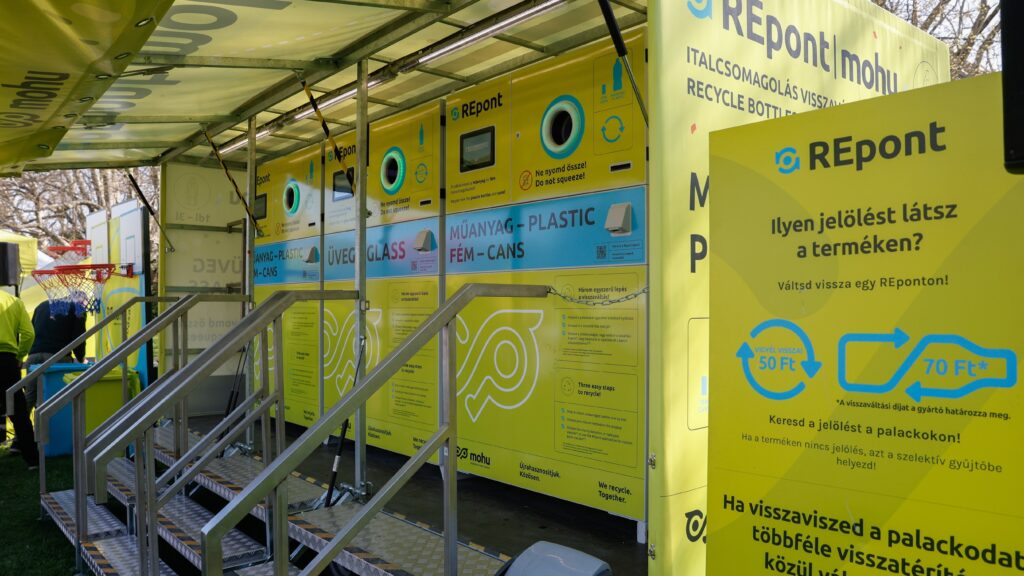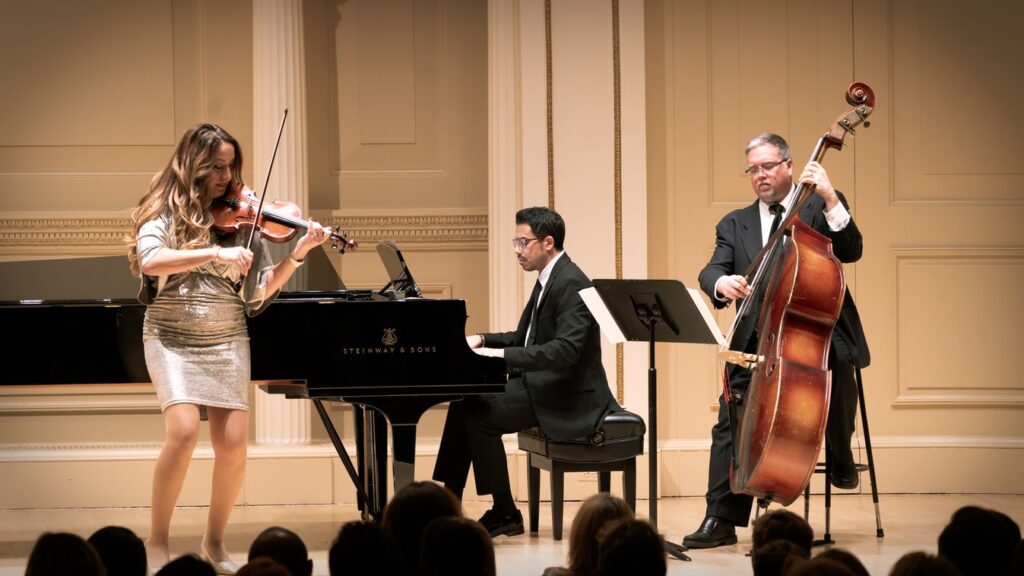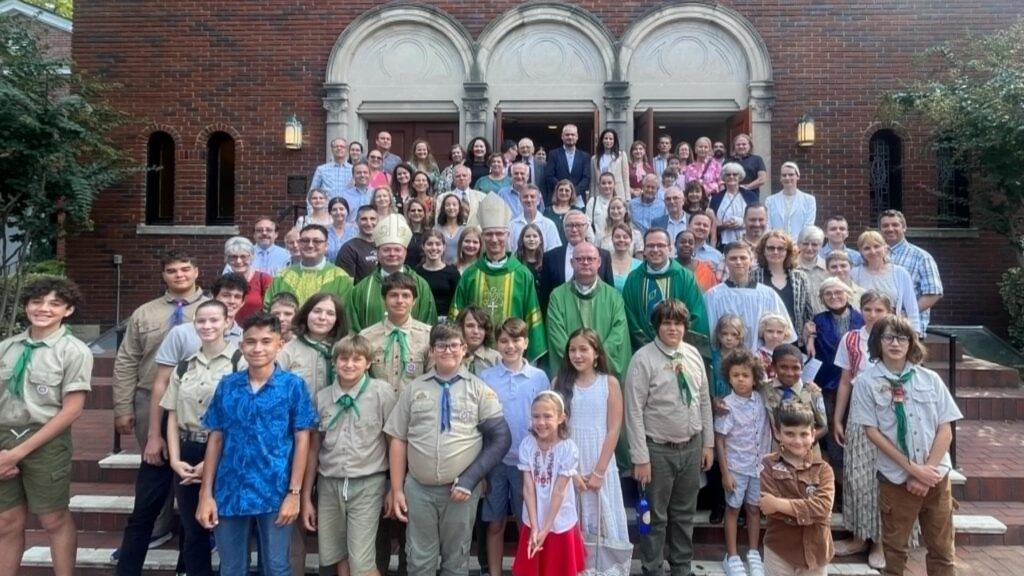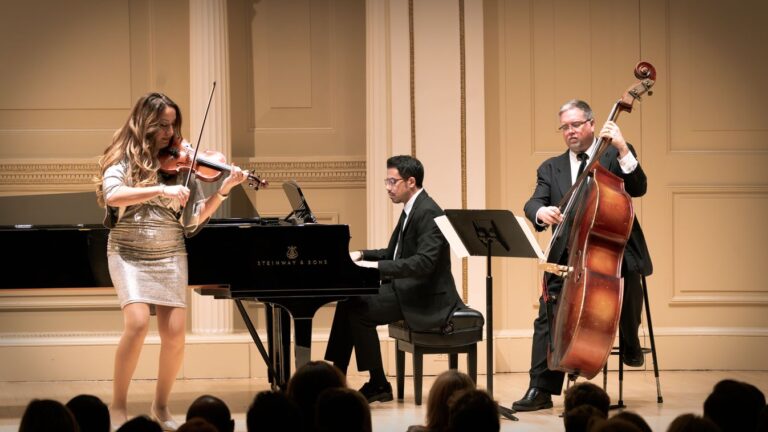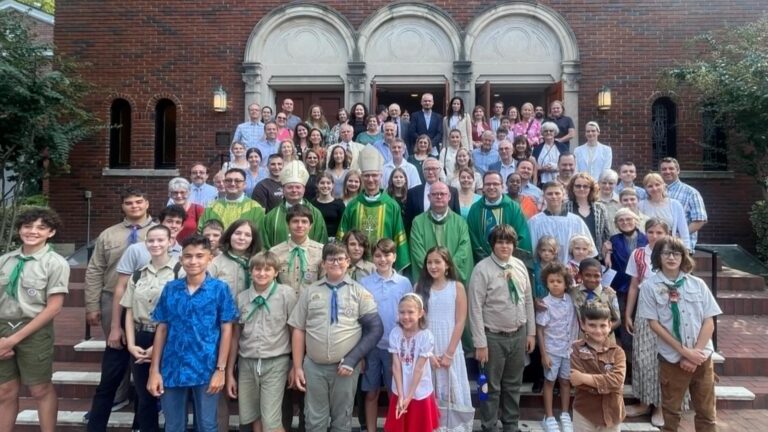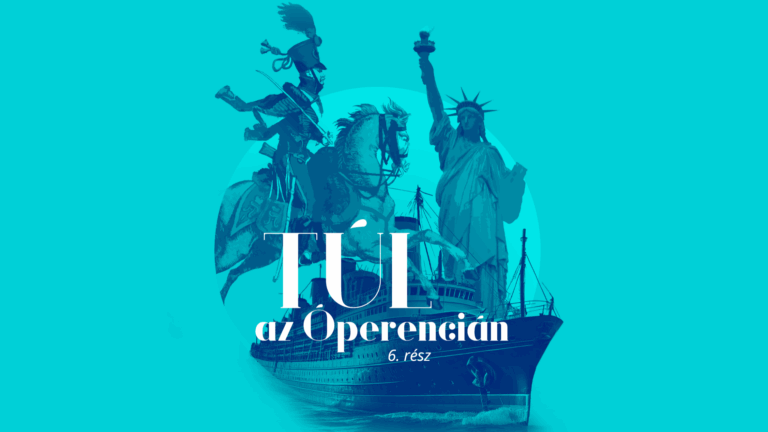At the Hungarian Sunday masses of the St. Stephen of Hungary Catholic Community in New York, each time you’d see an always elegant, vivacious elderly gentleman, who does not show his age nor the adversities of his past. On 23 October 1956, István Üsztöke took part in the production of the famous sixteen points and the leaflets calling for a general strike as a printer, for which he later had to flee Hungary, leaving a three-year-old son behind. During his childhood he had lost his two sisters; in America, he lost his second wife, his daughter, and one of his grandchildren. He worked as a printer until his retirement, then as a real estate agent, a candy man, and finally as a TV producer, for which he was personally honored by former Hungarian President János Áder. Close to 95 he is still driving a scooter around New York, and he is looking forward to traveling to Hungary to see his 12th great-grandchild.
***
Tell us about your childhood in Hatvan and your early enthusiasm for printing.
I was born in Hatvan on 17 October 1929. My father was a rail worker, and my mother’s family came from peasantry. Both of my sisters died, one of a childhood illness, the other one at the age of thirteen from gunshot wounds during the war. When I graduated from middle school, my father asked his colleagues to take me on as an apprentice in his radio and electrical shop. However, during the summer, when my parents thought I was out playing football at the Zagyva riverside, I worked in the Palásty printing workshop—there were three workshops in our town at the time, which was a big deal—because a friend of mine was an apprentice there and I was very interested in what he was doing. At the end of the summer I confessed to Mr. Palásty that I still had not dared to tell my parents what I was doing. Next Sunday, he told my father that I had been working for him all summer and that I was very good at it, so he would take me on formally as a student, and would even pay for my work. I still have the contract that we signed then. Way before the end of the four years (prescribed apprenticeship for printers), he registered me with the trade union, and as soon as I got my certificate, I went to Budapest, where the printing trade union first sent me to the printing workshop of Kis Újság, the paper of the Independent Smallholders, Agrarian Workers and Civic Party (Független Kisgazda-, Földmunkás- és Polgári Párt in Hungarian) on Eötvös Street. When the Communists banned the party and its daily newspaper, the printing workshop was also closed down, and the union sent me to Franklin Press on Szentkirályi Street, which used to be part of the St. Stephen Society, and was located opposite the Hungarian State Radio. I worked there as a printer assistant. My supervisor must have liked my job because he once told me: when one of the team members retired, I could take his place, even though I would not be next on the priority list maintained by the union, which later turned out to be a big advantage.
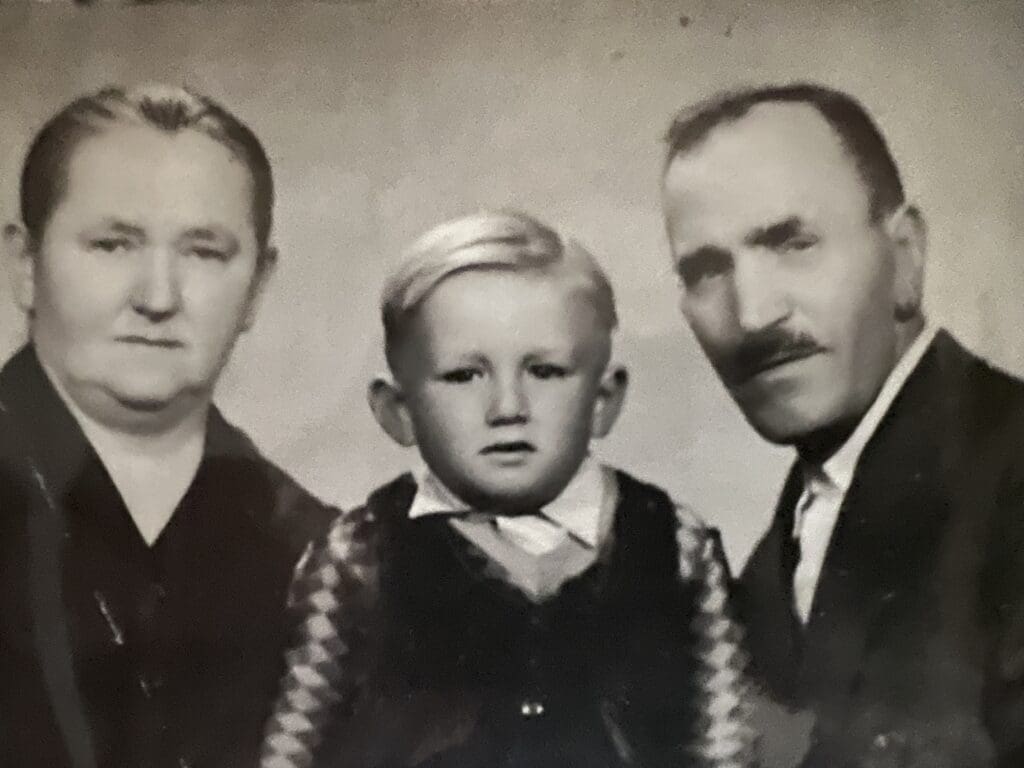
Then you worked at the Kossuth Printing House, but you ultimately needed to flee from there.
On 23 October 1956 I was working the second shift, and my landlady woke me up telling me that there was a lot of excitement in the city, and Kálvin Square was full of people. Since I lived nearby in Baross Street, I went out just out of curiosity and joined the students marching from Buda, shouting slogans. I left the march to go to work in the Kossuth Printing House on the nearby Honvéd Street, but I took the sixteen points with me that somebody pressed into my hands. The atmosphere there was also all in a glow, everyone was talking about the events of the day in the streets, but since we were working at a standard daily volume and every minute counted, I split the 16-point-paper in two. I gave half of it to my colleague, László Kurt, to help me. All the printers knew that violating the communist press law could mean long years of jail for us, but the atmosphere around us made us forget about it, so we produced the first free press product to be printed and handed it over to another colleague to finish the process. He did what we asked for, but in the meantime, he saved a copy for the general manager, Lajos Lengyel, too. Because of the student march, the whole management was in the building, and a bit later the whole bunch starting from the Communist party secretary to the general manager appeared next to my machine. The latter had a copy of the sixteen points in his hand and got straight to the point: ‘Comrade Üsztöke, where did you get this paper from? Do you know who made it?’ Behind the management I saw the colleague, so I knew that he had betrayed us. I replied: ‘Comrade Lengyel must have already been told about it by the person who gave you the paper.’ ‘But who helped you with it?’ he continued, and I do not know where I got the courage to do that, but I cynically remarked: ‘Surely Comrade Lengyel has already been told about that, too.’ Seeing that he was not going to get a straight answer from me, he said: ‘Very well, Comrade Üsztöke, we will come back to this tomorrow,’ and departed. That was the tomorrow that never came…
…because the next day the printing house was closed. But until then, much more had happened in the city and with you, too.
We had been working for an hour or two after this incident when students swarmed all over the workshop and asked us to print as many flyers as we could for distribution all over the city. This is how the mass printing of the sixteen points, the first free press product began. In the meantime, news came that the ÁVO (Hungarian State Security Department, the Communist party’s brutal police force) had shot into the crowd at the Radio’s building, and there were casualties. The students then decided to make leaflets calling for a 24-hour general strike in all factories across Budapest. The production of this leaflet, the second free press product began. Even though our working hours were long over, no one thought about going home or thought about tomorrow. Thousands of leaflets were printed, and in the early hours of the next morning the students and civilians joining them began to distribute the leaflets in all factories. That night, everyone forgot to be afraid; there was no fear in us whatsoever even when we looked out of the window and saw the armed patrols around the factory. No shots were fired, even though students with rifles had already arrived at the workshop at dawn. Of course Comrade Lengyel and his companions were nowhere to be found, they fled. We left the building around 9 or 10 in the morning. At that time, we did not even think that this would turn into a revolution, nor that my life as a printer in Hungary would come to an end. The next day the Kossuth Printing House was closed, the whole of Budapest went on strike, and after that I only went back once to collect my pay. As we were walking home on the morning of 24 October, we saw the first dead body opposite the Dohány Street Synagogue, in front of the present-day Belvárosi Theatre. We headed towards the Radio. The building was already closed, but the soldiers patrolling around let us into the courtyard. It was then that I got my first pistol, given to me by one of the soldiers. They handed over their guns because they did not want to shoot at civilians. I took it, but I did not engage in any armed combat during the subsequent days.
What happened later to the gun and to you?
I thoughtlessly put it in my closet under my clothes. A few days after the Soviet forces invaded Budapest and crushed the freedom fight, the police also came to my house for a search. I was not at home, but they found the gun, took it away, and told my landlady that they would come back for me. I hastily gathered my documents in a briefcase and fled, first to my parents’ house in Hatvan and then onwards. There was a young couple in the house where I lived who had already indicated their intention to flee the country, so I left Hungary with them. On the Sunday of 18 November, when all the bells of Budapest were chiming (protesting the Soviet and Communist rule), we were passing the Reformed Church in Kálvin Square. At Móricz Zsigmond Square we found a truck that took us to Tapolca (a southwest town of Hungary), where we boarded a train that was supposedly heading for the border, but suddenly the Russians intercepted the train and ordered everyone to get off. Everyone got off and started running. I was lucky again: the Russians fired only in the air and did not come after us. We set off on foot towards Burgenland (the easternmost Austrian province), as the Russians closed the border towards Vienna. We walked for two or three nights, hiding in the forests during the day, until we approached the border, where we stayed in a farmhouse for the night. By then we were a large group, including some square-built miners, who found a local who agreed to lead us. We gave him a lot of money and the miners threatened him: if he tried to cheat us, he would not survive. Unfortunately, that is exactly what happened: our leader at one point tried to flee, but the miners chased and caught him. We heard the shouting for a while and then the big silence… When we arrived at a cemetery with Gothic letters, we knew that we were not in Hungary anymore. From the cemetery we headed into the completely dark village, where everyone was asleep. We got to the closed church and whatever money we had left in our pockets we put under the door out of gratitude. We found an Austrian gendarmerie (federal police) station, and they took us to a school where we could stay overnight; next morning a Red Cross bus came and took us to Styria province. After two weeks, a bus took us to Salzburg, where I was registered as a refugee. The young woman of the couple I fled with from Budapest had an uncle in New Jersey; they went there, and I was given the name, address, and telephone number of a Hungarian doctor, whom I had never met, but he became my sponsor, so I could come to America. I arrived in the US on 1 January 1957 by boat. At midnight the captain asked everyone to come up to the deck and to shout: ‘Happy New Year!’ after he counted down. These were the first English words I learned.
New year, new life. How were those first years in America?
My first job was washing dishes at the Schreft Restaurant. The twelve 1956er Hungarian printers used to gather at my place and we went to the Big Six Typographical Union together to get accepted, which was not easy. It was a very strong union, they were careful about their priority system: you could progress in their printing companies only by seniority and they always started from the back when it came to layoffs. Before I got in, I worked for a few days in a small independent printing house, and then at the then-new Szabad Magyarság (a Hungarian emigrant paper), which was printed in a larger American printing house. I was the first of our 1956er group to join the trade union (after an exam), because I was both a manual and mechanical printer. I was sent to the company Publisher as I wanted to work for an American printing house. Most immigrants worked for a dollar an hour. At Szabad Magyarság I was paid $68 a week because I had to be a typesetter and assemble the pages at the weekends, while at the Publisher I was earning $106 a week. After three years at the Publisher, I went to Typographic, where I was the 64–65th on the priority list of 125; by the time the new system of computer printing came along. I was lucky again because the older colleagues did not want to learn it, so I could get to the new training easily. When the company went bankrupt shortly after, everybody was laid off, but since I learned computer printing, the union put me in another print shop, and later in another one, and that went on until I was 58 years old and retired.
Even in retirement, you worked long and hard…
I was too young not to do anything, so I took the real estate agency exam and worked in the afternoons. When I was no longer interested, I started to work with an ice-cream truck at the request of a colleague, helping him out two or three times a week. After a while I rented a truck on my own, and later I bought my own, a second-hand one. Since it was not a standard, but an international size, I had plenty of room left for ice-cream coolers. I bought a hot dog unit and added a candy shelf, making myself a candy man… We worked all winter to fix it up, and it was ready for the season. I had it painted white and had ‘Csárdás’ (a traditional Hungarian folk dance) written on it. In the 1990s I was trucking across Long Island, blasting Sammy Davis Jr.’s ‘Candyman’ from the speakers; quickly recognized by everyone, especially the kids. When I spoke Hungarian, they asked me what language I spoke; I told them I was a Martian. After three–four years I sold the truck for good money.
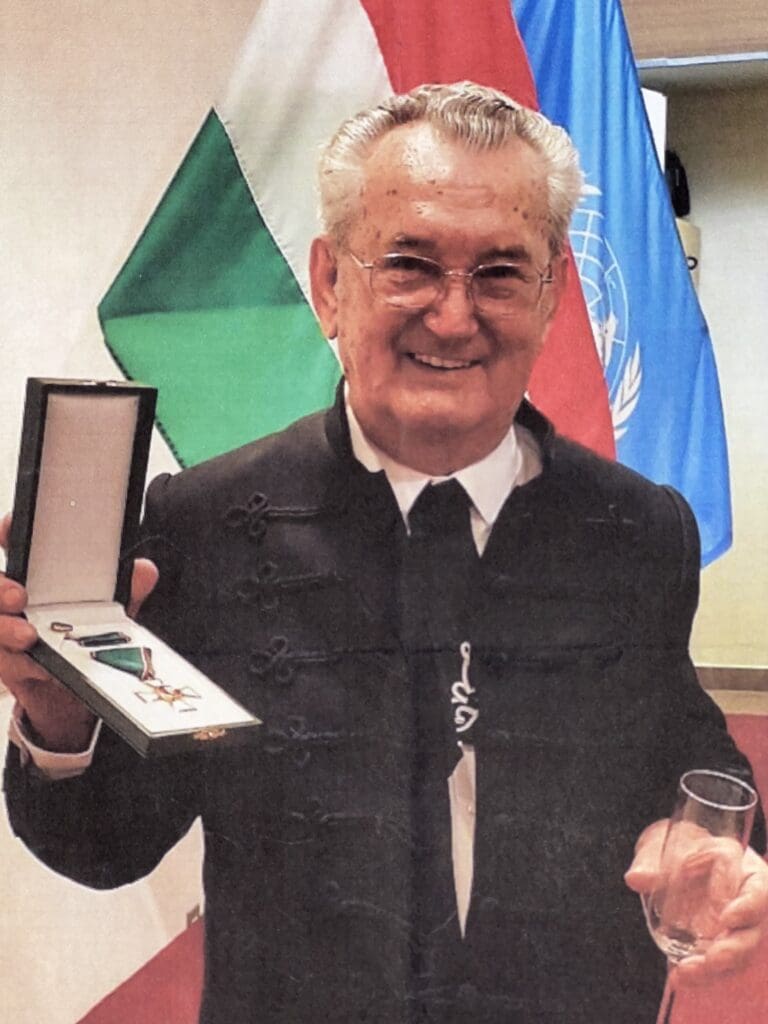
You produced Hungarian TV, for which you were honored by Hungarian President János Áder.
Around 1993–1994, Zsuzsa Viczián, who ran a Hungarian TV channel in New York, asked me to help producing the announcements once a week at the Reformed Church on 82nd Street. When Zsuzsa moved back to Hungary, I decided to do my own TV since by then I had already learned a lot about the technicalities of running a local weekly cable TV-program. When I read in the Queens News about starting a Public Access Channel and taking on apprentices, I applied and I learned even more, in my seventies by that time. I had my small TV studio right here in my apartment, it was called the Hungarian TV Magazine of Queens. I got in touch with Duna TV in Budapest, who sent me material every week to use and I edited that into a half-hour program, and the other half-hour was about local news and events. Whenever there was a Hungarian event somewhere in New York City, including the Consulate General, they called me to report, because even though I was relatively new in the business, I already had a name. This is why in 2017 I received the Knight’s Cross of the Hungarian Order of Merit personally from Hungarian President János Áder. I was praised by the Consul General at the time, Ferenc Kumin, who mentioned my 1956er role and my TV activities. I have been a member of the World Federation of Hungarian Freedom Fighters of 1956 since 1957 and of the Secular Committee of the St. Stephen’s Catholic Community for many years. Close to 90 I felt old enough to quit the TV. There was no one I could sell or hand it over; the younger immigrant generations do not want to produce radio, TV or newspapers, because there is no profit in these activities.
There has been almost no mention of your family so far, although your 12th grandchild is due soon.
I married for the first time at 20, and I was very keen to have children, but my first wife said she did not want children because it would spoil her girlish figure. Later on I met a woman and told her frankly that if she gave me a child, she would be more than a wife to me (since I was not officially divorced at the time). Zsuzsa became pregnant shortly afterwards, and my first son Gábor was born. I immediately accepted him as my own; I did not change my mind for a moment. Since we did not have an apartment there, we moved back home to my parents’ house with our son and from there we commuted to Budapest daily. One day I found out that she had been cheating on me with her boss, so we parted ways. I told her Gábor would stay with my parents, who would help raise him. She sued me for that, but then she did not show up for the hearing. When I fled Hungary in 1956, my son was three years old. I felt very sorry for him, but I had no choice. When the police found the gun in my closet, I went to briefly say goodbye to my parents and my son. I told my father about the printing of the sixteen points and the gun and asked him to look after my son. I did not tell my mother anything. My father said: ‘Son, you know very well that he will be alright with us. You can always come back to him.’ Gábor grew up with my parents until he was 13. Then I wrote to my father that I had been granted American citizenship and could officially bring him to live with me in America. By then I was remarried, and had two children, Tamás and Ágnes, and wanted Gábor to grow up with them.
How did you meet your second wife and how big is your American family by now?
I met Etelka, then 19, at an English language school shortly after arriving in New York. She had also immigrated after the 1956 revolution, but somewhat differently than many of us: she had been taken out of an Italian refugee camp, because her 14-year-old brother was already living here in America by that time. As I was late to the school that day, I sat alone on the bench and the teacher made her sit next to me. We talked a lot with each other, and I said to myself after a while: ‘Pista, you are a divorced man, you are nearly 30, so you must marry her as soon as possible.’ As a young married couple, we lived in Astoria, New York, then moved to Syosset on Long Island for 20 years, and after I retired, we moved back to Astoria. My daughter Ágnes died of breast cancer in 2006, aged 46, leaving behind four daughters. Annamarie was 17–18 at that time and she now lives with me in the basement, alone. Stephanie has two daughters and a son; Debra Ann has one daughter and one son. The youngest, Christina, passed away during her childhood. My son Tamás is married but has no children, so I have five Hungarian American grandchildren. The same year we lost Ágnes, Etelka also passed away. She became very severely diabetic and terribly obese, so she had to spend the last year and a half of her life in a rehabilitation center.
What happened in the meantime to your older son in Hungary?
He could not decide on his own, and the adults around him could stop him from joining me in the US. My father was scared that he would lose his only grandchild after losing his only son, so when he received my letter, he ran to his mother who took over Gábor’s custody. Zsuzsa was living with her mother in Újpest; my son spent the rest of his teenage years there. I tried to visit him as often as possible. I could legally go back to Hungary after I received my American citizenship, the first time when my father had died. At his funeral, I explained to my son, who was 17–18 then, why I could not get him out to the US. I asked him to do his military service first, after which I could easily get him out. I only found out later that he had been discharged because he was about to marry. Her mother did not want to lose him once she had him back, so she set him up with a colleague of hers. Again my plan went up in flames. Gábor’s early marriage failed, but he had two sons, Péter and Attila. At the time of his divorce, my son wrote to me asking if I could arrange for him to immigrate to America. I replied: ‘Son, you grew up without a father and now you want to give your children the same fate?!’ So, for the third time, it was up to me to have him stay in Hungary. Later he met another girl, with whom he has been living with ever since, and who gave birth to a daughter, Gabriella. So I have three grandchildren in Hungary, who have six children in total. Attila is about to have a third baby in the near future, who is going to be my seventh great-grandchild in Hungary and my 12th great-grandchild in total. I would very much love to see him upon his arrival to this world, so I am looking forward to travelling back to Hungary—which I do twice a year to keep in touch with my family there—in April; I have already bought my plane ticket!

